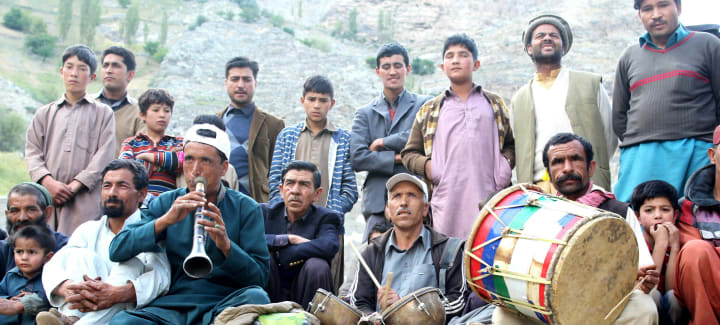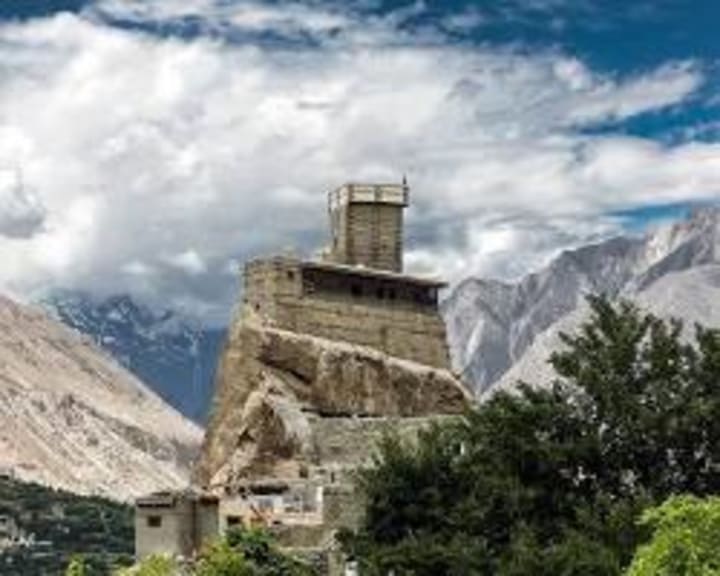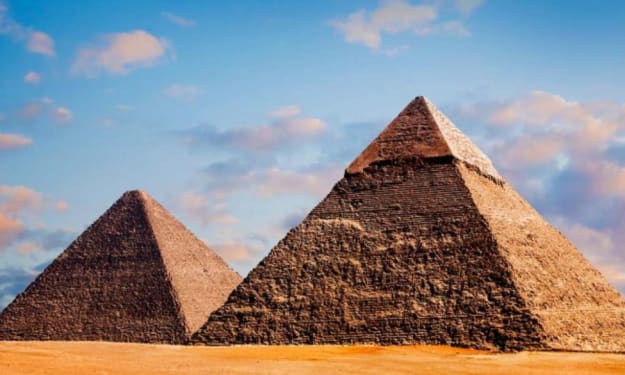
It is a very beautiful place in Asia that is called Hunza Valley.
Hunza Valley, a jewel nestled amidst the colossal peaks of the Gilgit-Baltistan region in Pakistan, boasts a history as captivating as its scenery. For millennia, this valley has witnessed the rise and fall of empires, the ebb and flow of trade routes, and the development of a unique culture that continues to enthrall visitors today. Let's embark on a journey through time, exploring the layers of history that have shaped this extraordinary place.
It also has an amazing history!
The Pre-Islamic Era (8th Century BC - 10th Century AD)
Our story begins sometime in the 8th century BC, when archaeological evidence suggests the first settlements emerged in the Hunza Valley. While the exact details remain shrouded in mystery, it's clear that this harsh yet fertile environment fostered human habitation. Fast forward to around the 3rd century BC, and the influence of Buddhism began to take root.
The valley finds itself positioned along a vital trade route, the Silk Road, connecting Central Asia with the Indian subcontinent. This strategic location not only facilitates trade but also provides safe passage for Buddhist missionaries and monks traveling to spread their teachings. Evidence of this flourishing Buddhist presence can still be found in the form of ancient petroglyphs and the revered Sacred Rock of Hunza, a testament to the deep connection the people had with their faith.
(10th Century AD - 18th Century AD)
Around the 10th century AD, a significant shift occurs in Hunza's history. A new kingdom emerged, ruled by a dynasty known as the Mirs, who held the title of Thum. These Mirs, shrouded in legend, claimed descent from Alexander the Great, a lineage that served to bolster their authority. Under their leadership, Hunza flourishes as an independent principality for over nine centuries.
The Mirs and China :
While the Mirs of Hunza ruled with autonomy, they maintained a complex relationship with China. From the 18th century onwards, they acknowledged China as a suzerain, a state to whom they owed a degree of allegiance. This relationship was primarily symbolic, with China exerting minimal control over Hunza's internal affairs. However, it did secure trade ties and offered a measure of protection against potential adversaries.
The Great Game: A Strategic Chessboard (19th Century AD)
The 19th century ushered in a period of heightened geopolitical intrigue. The region became a pawn in the "Great Game," a bitter rivalry between the British and Russian empires vying for control of Central Asia. Hunza's strategic location, nestled between these empires, made it a crucial territory. The British, recognizing its importance, dispatched multiple expeditions to the valley, attempting to establish a foothold.
In 1891, the simmering tensions between the British and the Mirs of Hunza culminated in the Hunza-Nagar Campaign. The British emerged victorious, effectively bringing Hunza under their control.
Independence and Integration (1947 - Present)
With the independence of Pakistan in 1947, the political landscape of the region shifted once more. Hunza, along with other princely states, remained unaligned for a brief period. However, in 1974, under the leadership of Prime Minister Zulfikar Ali Bhutto, the princely state system was abolished entirely. Hunza was formally integrated into the larger administrative framework of Pakistan.
Today, Hunza Valley is a dream destination for many tourists, and for good reason. Here's why:
Breathtaking Scenery: The valley is nestled amidst the majestic peaks of the Karakoram Mountains, including some of the highest mountains in the world like Rakaposhi (7,788 meters) and Gasherbrum I (8,080 meters). The view of these snow-capped giants towering over lush green valleys is simply unforgettable.

Culture: Hunza has a rich cultural heritage, developed in isolation for centuries. The people here are famous for their hospitality and welcoming nature. Their traditional way of life, including their dress, music, and food, is a fascinating glimpse into a different world.

Adventure Activities: The valley offers a plethora of adventure activities for thrill-seekers. You can go trekking on high-altitude trails, mountain climbing, white water rafting on the Hunza River, or jeep safaris on rugged mountain roads.
Historical sites: History buffs will find plenty to explore in Hunza. The Altit Fort and Baltit Fort, centuries-old forts that once served as the seats of power for the Mirs of Hunza, are a must-visit. There are also several ancient petroglyphs and archaeological sites scattered throughout the valley.


If you are making plan to visit this place then you should know some points to make your ride enjoyable.
Location: Hunza Valley is located in a remote region of Pakistan. The nearest major airport is in Islamabad, and from there, you can take a connecting flight to Gilgit. You can also reach Hunza by road, but the journey is long and arduous, with winding mountain roads.
Accommodation: There are a range of accommodation options available in Hunza Valley, from budget guesthouses to luxury hotels. Homestays are a great way to experience the local culture and get to know the people.
Suitable time: The best time to visit Hunza Valley is from spring to autumn (April to October). The weather is pleasant during these months, and the skies are clear. Winters can be very cold and snowy, with some roads becoming impassable.
About the Creator
Junaid
I am a graduated person and I am here to share my thoughts with those who like to read articles.






Comments
There are no comments for this story
Be the first to respond and start the conversation.